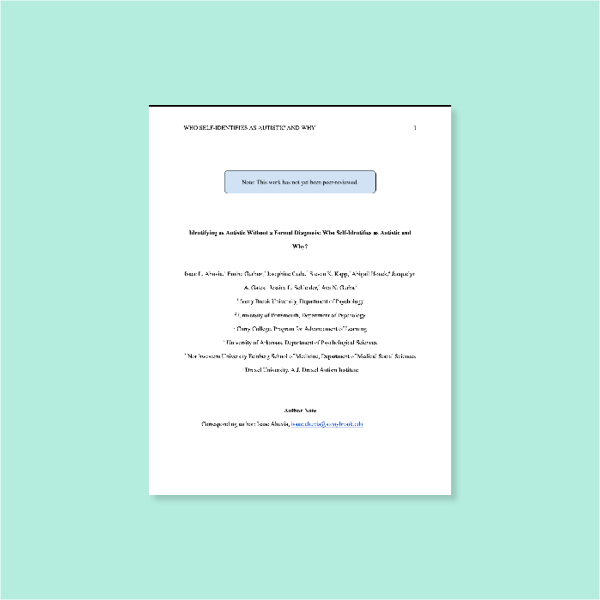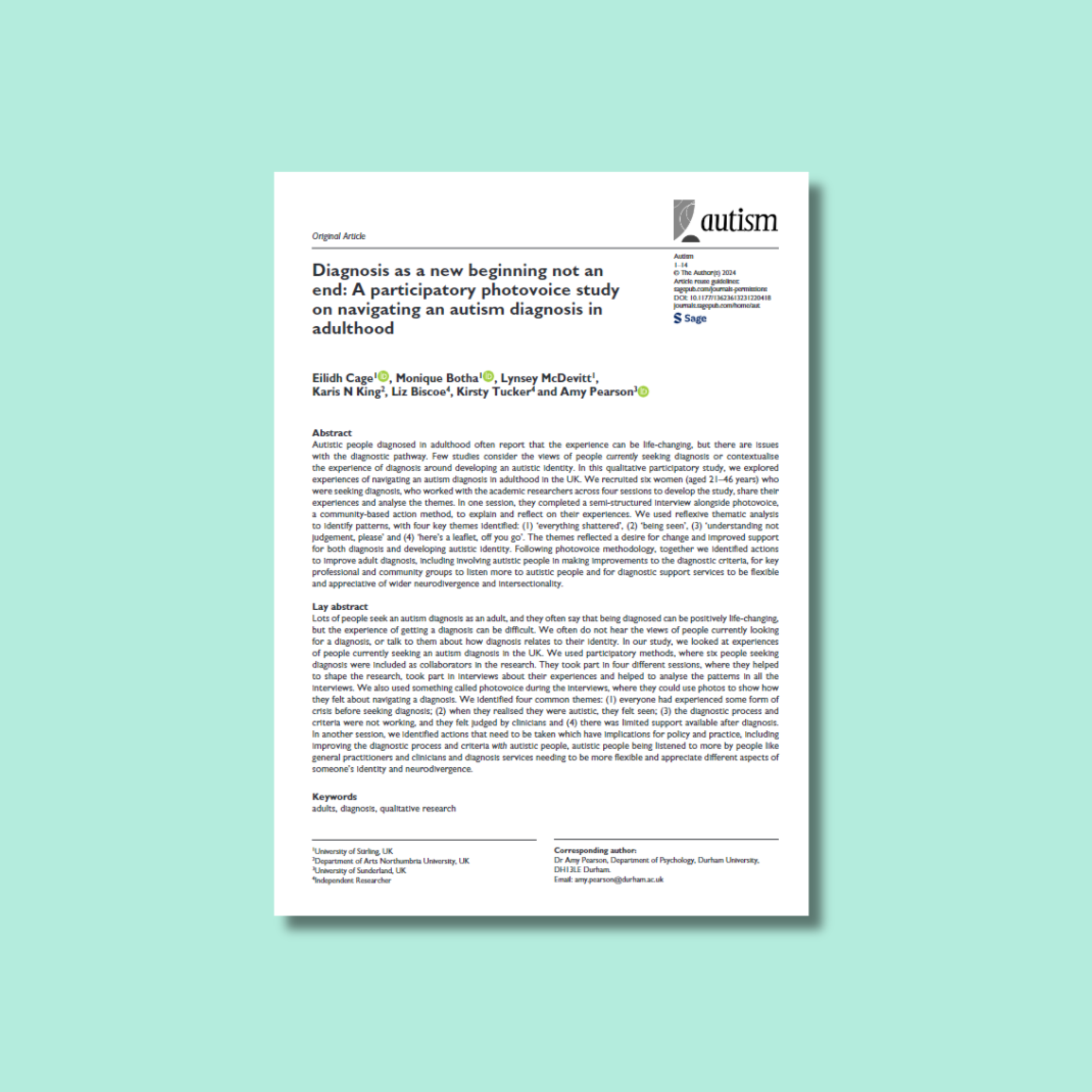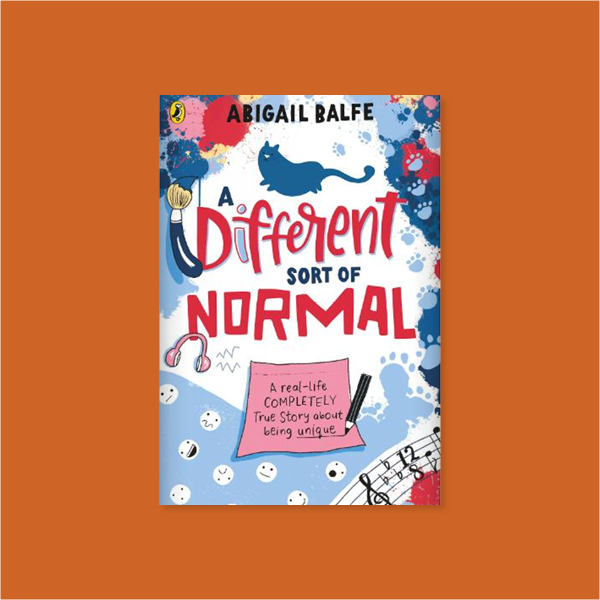 Image 1 of 1
Image 1 of 1


Who self identifies as Autistic and why
This study compared self-identifying autistic adults with those who have a formal diagnosis, finding both groups share similar autistic traits. However, self-identifying adults, who were more often cisgender women, reported poorer mental well-being, more unmet support needs, and greater barriers to accessing services. Most wanted a formal diagnosis for validation and access to support, but faced obstacles like limited resources and fear of stigma, highlighting the need for improved access to diagnostic and psychosocial services.
This study compared self-identifying autistic adults with those who have a formal diagnosis, finding both groups share similar autistic traits. However, self-identifying adults, who were more often cisgender women, reported poorer mental well-being, more unmet support needs, and greater barriers to accessing services. Most wanted a formal diagnosis for validation and access to support, but faced obstacles like limited resources and fear of stigma, highlighting the need for improved access to diagnostic and psychosocial services.






